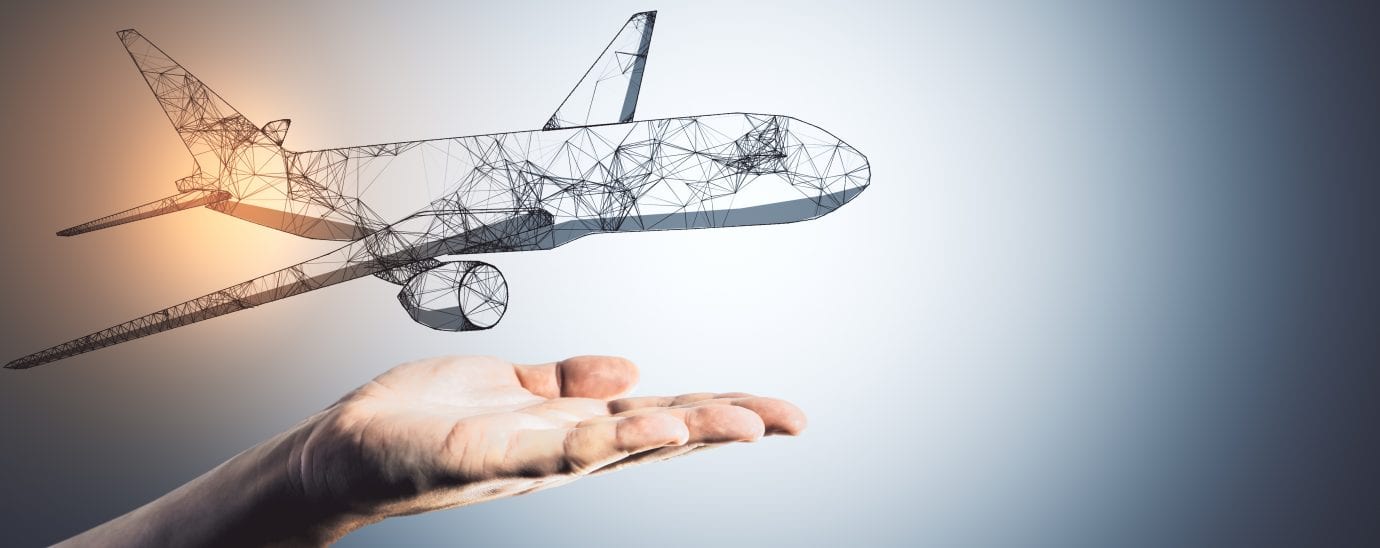Technology and AI integration will help the aviation industry in a post-Covid world

Air travel has undoubtedly been one of the hardest-hit industries during the COVID-19 pandemic. With the accumulation of flight cancellations, grounded fleets and airport closures, the IATA has estimated that airlines will lose at least $314 billion due to the outbreak. As a result, we have seen unparalleled job cuts across the industry, including at major airlines such as British Airways and Virgin Atlantic
As the industry looks to recover from this unprecedented period of disturbance, airlines will need to adapt in order to succeed and meet the demands in a post-Covid world. This will involve assessing their overheads and prioritising a standard of safety across all operations. Pilots and their training account for one of the biggest costs to airlines. As they review their budgets, they will need to re-think their pilot training strategy and consider possible solutions such as outsourcing in order to maximize efficiency.
While the aviation industry is undoubtedly equipped to make these changes, dynamism from the regulators will be essential. This highlights the need for regulators to make changes to the training process, as well as working collaboratively with pilot training facilities, to ensure that there are enough licensed pilots ready to return to the sky, when the opportunity arises.
For example, there will need to be more reliance on e-learning in the initial cadet training and the adoption of integrated technology in simulator training will also be important. This will help to train a new cohort of pilots while enabling established pilots to keep their licenses valid, despite flights still being grounded.
E-learning
Adopting e-learning programmes will prove key in revolutionising the aviation industry, particularly for training purposes. Alpha Aviation Group is already working closely with both regulators and airlines to develop its potential in supporting future pilot pools.
With social distancing measures and restrictions on physical travel set to remain in place for the foreseeable future, pilot training facilities don’t know when they will be able to have all students back in the classroom. By implementing e-learning solutions, classes have been able to stay on track and cadets have been able to train with confidence, remotely.
Growing consumer demand coupled with pilots retiring will create a need for a new cohort of pilots. Therefore, it is crucial to adapt the training programmes in place to ensure that when the pandemic starts to ease, there is a new pool of cadets, prepared for take-off.
Undoubtedly, the current crisis has propelled forward this digital transformation. However, airlines are already finding that online programmes are proving equally beneficial to traditional training methods, with teaching sessions and remote testing running seamlessly.
No longer restricted by the size and capacity of training centres, e-learning programmes have enabled airlines to expand cadet classes. By significantly opening up access to becoming an aviator, airlines can ensure a strong employee base and recruit the best talent, irrespective of locality.
Flight Simulators
Despite the current circumstances, pilots are still required to clock up over 1,500 flying hours to receive their ATP certificate. Internationally, pilots are required to complete at least three take-offs and landings within 90 days in an aircraft, or if not possible, they must complete these in a Flight Simulator with Level -D.
In addition to this, many pilots have found themselves placed on furlough or made redundant due to the outbreak. Despite not being able to fly, simulators will prove crucial for supporting these pilots, enabling them to continue clocking up hours in the cockpit and completing the relevant annual assessments in order to keep their licenses valid.
Among other benefits, simulators can help deliver effective e-learning solutions that cater to customised needs. Unliked conventional classrooms, simulator training enables pilots to practice any inflight scenario, actually reducing the number of flying hours required.
Artificial Intelligence (AI)
From facial recognition at airport passport security to baggage check-in, AI technologies have already been widely adopted across the aviation industry. We have already seen the impact of these innovations, in terms of streamlining processes, both for operators and customers. However, when combined with flight simulators, AI has much greater potential.
AI and machine learning algorithms excel at recognising patterns and are extremely efficient at collating data from the process of training cadets. With flight simulators already equipped with sensors that generate considerable amounts of data, pilot competency can now be assessed from the onset of training.
Unlike a human coach, AI and machine learning systems can analyse hundreds of flight parameters and filter through thousands of hours of simulator data. For example, AI programmes can assess a pilot’s ability and evaluate a cadet’s strengths and weaknesses, based on real-time data.
By combing AI systems with simulators, airlines can gather enough data to build a picture of each pilot’s unique flying style, taking into account their angle of descent and acceleration periods. This can then be used to determine the optimum routes for them to fly in the future.
Among other benefits, AI systems can collect flight data to show the rate each pilot burns fuel, based on distance, altitudes and aircraft weight. With airlines spending around 33 percent of their operational costs on fuel, reducing the rate that fuel is burned will result in considerable cost savings for the airlines.
Industry take-off
Whilst 2020 triggered one of the most disruptive periods for air travel, Alpha Aviation believe it has significantly accelerated the tech transition, achieving in 8 months what could have taken over 15 years.
Now, with airlines even more concerned about reducing overheads, key industry players will need to adapt and innovate, in order to find better ways to optimise resources and outlast the pandemic.
Data is undoubtedly the key to revolutionising the future of aviation and, as the sector re-builds in this new Covid-era, the importance of investing in AI technologies, along with the adoption of e-learning and simulator training, will only become more important.
